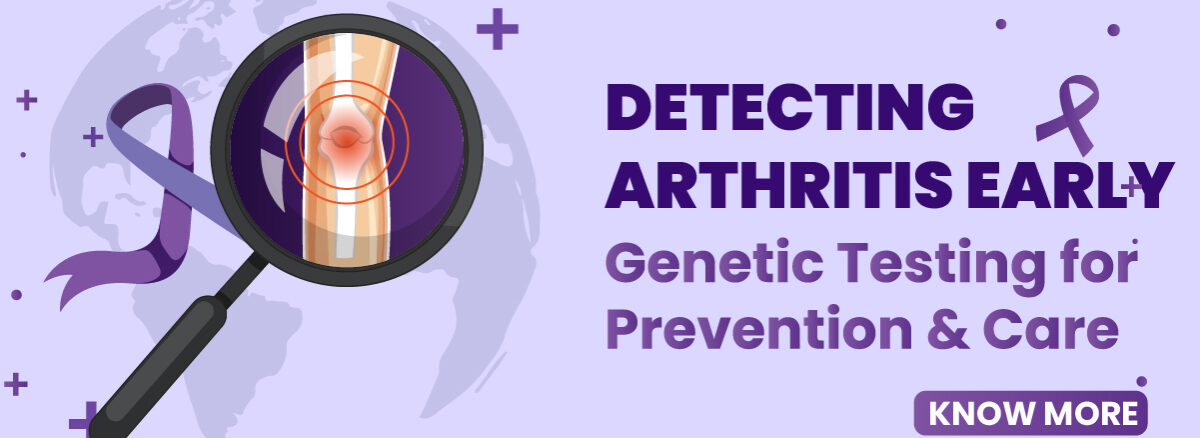Did you know that genetic factors account for up to 60% of rheumatoid arthritis risk? This means that your family history significantly influences your risk, and several studies have shown that people with specific gene variations have a five-times higher risk of developing arthritis.
Arthritis is a debilitating condition that affects millions of people, causing pain, stiffness, and a reduced quality of life. Arthritis isn’t just a result of wear and tear. While it’s commonly associated with aging, genetics plays a significant role in the development of arthritis, particularly rheumatoid arthritis (RA) and osteoarthritis (OA).
The role of genetics in arthritis
Research has identified certain gene variations linked to a heightened risk of arthritis. For example:
- HLA-DRB1 is a gene closely associated with rheumatoid arthritis. Variations in this gene significantly increase the likelihood of developing RA, especially when combined with environmental factors like smoking.
- COL2A1 is related to the production of collagen, a vital component of cartilage. Mutations in this gene can lead to early-onset osteoarthritis.
While these genes don’t guarantee that someone will develop arthritis, understanding genetic predisposition can allow for early intervention, which can slow or even prevent the progression of the disease.
The benefits of early genetic testing for arthritis
Genetic testing is a powerful tool for early detection and prevention of arthritis. It provides individuals with valuable insights into their genetic predispositions and allows doctors to create more targeted, personalized prevention or treatment plans.
Key Benefits of Genetic Testing:
- Early Risk Identification: Testing can reveal a person’s likelihood of developing arthritis long before symptoms appear, allowing for preventive strategies.
- Informed Lifestyle Changes: Armed with knowledge about genetic risks, individuals can make lifestyle modifications—such as diet, exercise, and avoiding smoking—that reduce the chances of developing arthritis.
- Personalized Treatment Plans: For those already at risk or in the early stages of arthritis, genetic information allows doctors to design more personalized treatment approaches, improving patient outcomes.
- Family Planning: Genetic testing is also valuable for families, as it provides insights into hereditary risks, helping family members understand their potential predispositions.
How Genetic Testing Works for Arthritis
Genetic testing for arthritis involves a simple, non-invasive saliva test, which is analyzed to detect specific gene variations linked to the condition. These tests look for markers associated with RA, OA, and other inflammatory conditions.
Based on the report Genetic counselors and doctors will offer recommendations based on your genetic profile. If your results show a high risk for arthritis, your doctor may suggest early interventions such as:
Engaging in physical therapy can improve muscle strength and foster joint health.
Use of anti-inflammatory medications or supplements to reduce joint inflammation.
Regularly monitoring for early signs of joint damage.
Early detection through genetic testing offers an invaluable opportunity to understand your risk factors and take proactive steps to manage or even prevent the onset of this chronic condition.
Arthritis often goes unnoticed in its early stages, making early detection crucial. By understanding your genetic predispositions, you can control your health before symptoms appear. Whether it’s adopting a healthier lifestyle or monitoring for early signs, genetic testing empowers individuals to take proactive steps in managing their arthritis risk.
Explore our advanced genetic tests today to comprehend your arthritis risk and initiate preventive measures. visit www.progenicslabs.com.


